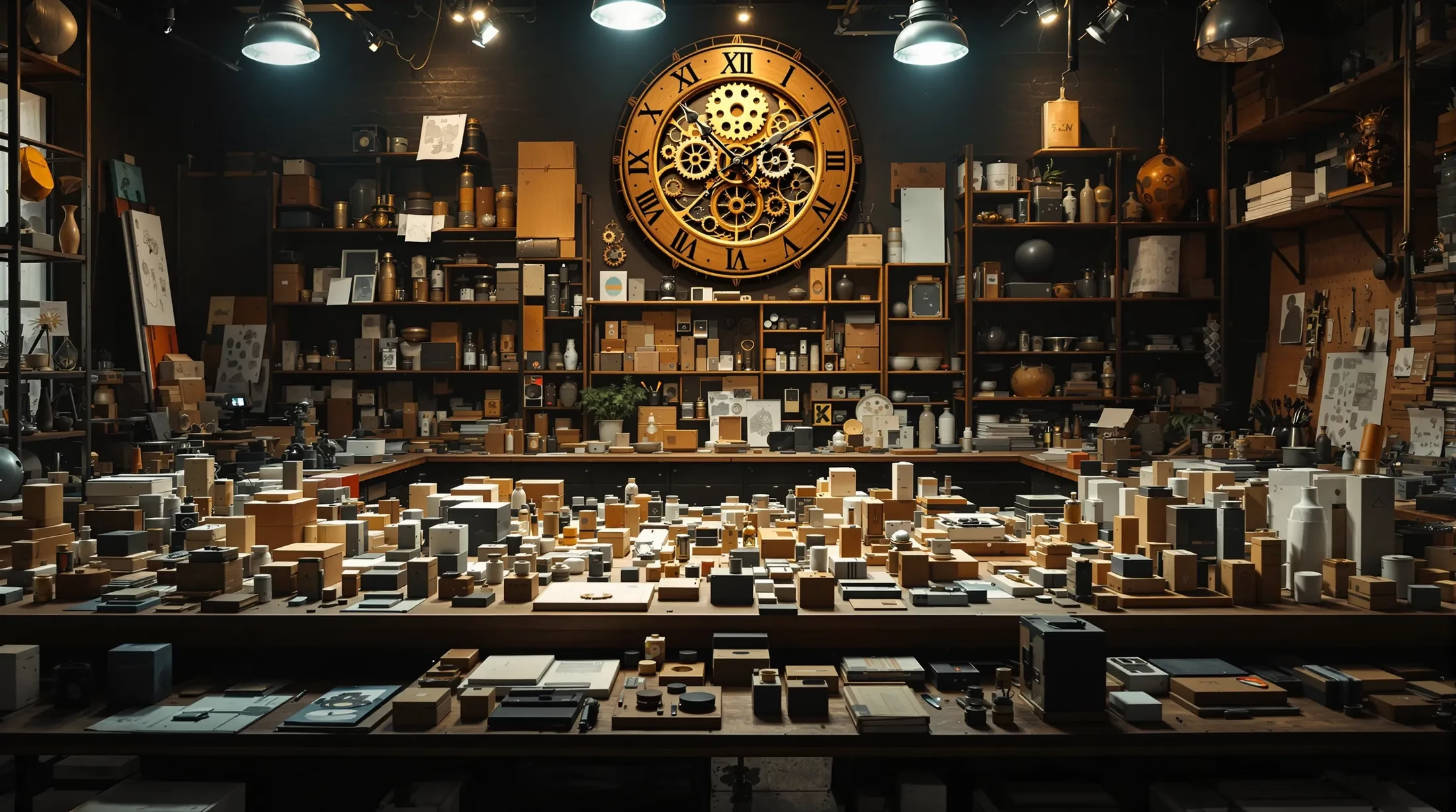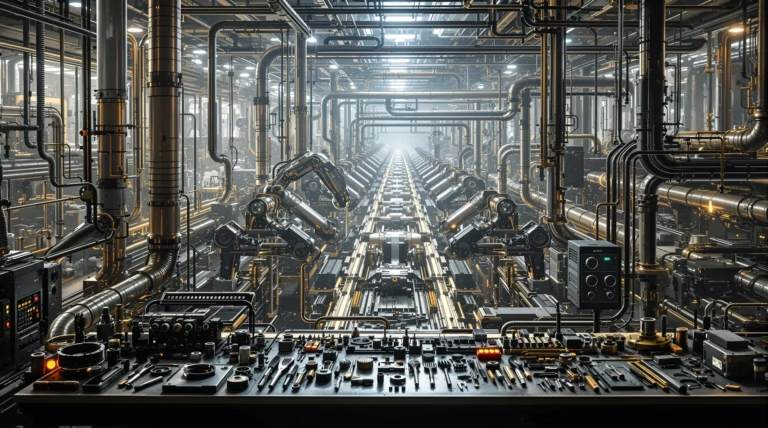Packaging Engineer: Career Insights and Job Opportunities
Discover the dynamic world of packaging engineering, where innovation meets functionality to create solutions that protect products and enhance consumer experiences. From designing sustainable materials to implementing cutting-edge technologies, packaging engineers play a crucial role in modern manufacturing and distribution.
What is a Packaging Engineer?
A packaging engineer is a specialized professional who combines engineering principles with creative design to develop comprehensive packaging solutions. These experts work at the intersection of functionality and aesthetics, focusing on product protection throughout the supply chain while enhancing brand recognition.
This multidisciplinary field encompasses package engineering, packaging technology, and packaging science, requiring expertise in various technical areas. Packaging engineers create solutions that address:
- Product protection and safety measures
- Shelf life optimization
- Cost-effective manufacturing processes
- Environmental impact reduction
- Regulatory compliance
- Consumer usability enhancement
Role and Responsibilities of a Packaging Engineer
The primary responsibility of a packaging engineer centers on creating protective enclosures that ensure product integrity. They work across multiple domains, collaborating with various departments to develop comprehensive packaging solutions.
- Material selection and structural design
- Performance testing and validation
- Manufacturing process optimization
- Sustainability implementation
- Regulatory compliance management
- Cross-functional team collaboration
Importance of Packaging Design in Engineering
Packaging design represents a critical engineering discipline that extends beyond aesthetics. It serves as the primary defense mechanism protecting products from various hazards while driving significant business outcomes.
| Design Aspect | Business Impact |
|---|---|
| Structural integrity | Reduced damage and returns |
| Material optimization | Lower production costs |
| Space efficiency | Reduced shipping expenses |
| Shelf life extension | Minimized product waste |
| User experience | Increased brand loyalty |
Skills and Qualifications Required for Packaging Engineers
Successful packaging engineers combine technical expertise with creative problem-solving abilities. The profession demands a comprehensive skill set that evolves with technological advancements and industry requirements.
Essential Skills for a Successful Packaging Engineer
- Advanced knowledge of material properties and structural design
- Proficiency in CAD software and 3D modeling
- Strong analytical and problem-solving capabilities
- Excellent project management abilities
- Effective communication skills
- Understanding of sustainability principles
Educational Pathways and Qualifications
While specialized degrees in packaging engineering provide the most direct path, professionals can enter the field through various educational routes:
- Bachelor’s degrees in packaging engineering, mechanical engineering, or related fields
- Advanced degrees (MS, M.Tech, PhD) for research and leadership roles
- Professional certifications (CPP, technical certifications)
- Practical experience through internships and cooperative education programs
- Continuous professional development through industry conferences and workshops
Career Opportunities and Growth in Packaging Engineering
The field of packaging engineering offers diverse and rewarding career paths across multiple industries. Professionals in this discipline operate at the intersection of product development, manufacturing, sustainability, and consumer experience, creating opportunities in sectors from food and beverages to pharmaceuticals, electronics, cosmetics, and industrial products.
The dynamic nature of packaging engineering provides excellent career stability and growth potential. As companies continuously seek innovative solutions to differentiate their products, reduce costs, and meet sustainability goals, the demand for qualified packaging professionals remains strong. The field’s multidisciplinary nature enables specialization in various areas:
- Materials science and development
- Structural design and optimization
- Sustainability initiatives
- Manufacturing process improvement
- Quality control systems
- Supply chain optimization
Exploring Career Paths in Packaging Engineering
| Role | Primary Focus |
|---|---|
| Packaging Engineer | Comprehensive packaging solutions development |
| Product Development Engineer | Integration of packaging with new product launches |
| Sustainability Engineer | Eco-friendly materials and design implementation |
| Process Engineer | Packaging operations optimization |
| Reliability Engineer | Testing and validation of packaging systems |
Advancement and Growth Prospects
Career progression in packaging engineering follows several well-defined pathways. Entry-level engineers typically begin with focused responsibilities in testing and minor design improvements. As experience grows, opportunities expand to:
- Leading complex development projects
- Managing packaging portfolios
- Directing innovation strategies
- Supervising technical teams
- Advancing to executive positions like Packaging Department Director or Technical Director
The growth potential extends beyond traditional career ladders. Specialists in high-demand areas like sustainable materials, e-commerce packaging, or smart packaging technologies often command premium compensation. Many experienced professionals transition into strategic roles, become independent consultants, or launch entrepreneurial ventures. The global nature of packaging operations creates opportunities for international assignments and leadership of worldwide standardization efforts.
Sustainability in Packaging Design
Sustainability has fundamentally transformed packaging engineering priorities, with increasing consumer and regulatory pressure driving unprecedented demand for eco-friendly solutions. Modern packaging engineers are at the forefront of developing materials and designs that minimize environmental impact throughout the product lifecycle. This includes pioneering work with recyclable and biodegradable alternatives to traditional plastics, creating mono-material structures that simplify recycling processes, and reimagining packaging architectures to eliminate unnecessary components while maintaining protection standards.
- Holistic lifecycle assessment of environmental impact
- Material selection optimization
- Manufacturing energy efficiency
- Transportation optimization
- Product protection standards
- End-of-life disposal solutions
Leading companies are establishing circular economy packaging models where materials maintain value through multiple use cycles, creating complex engineering challenges around material durability, cleaning processes, and standardization. Packaging engineers who master these sustainability complexities position themselves at the cutting edge of the profession, driving innovation that delivers both environmental and business benefits.
Salary Expectations for Packaging Engineers
Packaging engineers enjoy competitive compensation that reflects their specialized technical expertise and the critical role they play in product development and distribution. In the United States, packaging engineers typically earn between $65,000 and $110,000 annually, with the national average hovering around $85,000. This salary range positions packaging engineering as a financially rewarding career path within the broader engineering disciplines, offering strong returns on educational investment while providing stable employment prospects across multiple industries.
| Compensation Component | Details |
|---|---|
| Base Salary Range | $65,000 – $110,000 |
| Performance Bonuses | Based on individual and company performance |
| Professional Development | Tuition reimbursement and training allowances |
| Additional Benefits | Profit sharing, relocation assistance, comprehensive benefits |
Average Salary and Factors Influencing Pay
- Experience Level – Entry-level: $55,000-$70,000; Senior (10+ years): $120,000+
- Geographic Location – Premium compensation in manufacturing hubs and major metropolitan areas
- Industry Sector – Highest in pharmaceuticals and medical devices, followed by consumer electronics
- Educational Qualifications – Advanced degrees command 10-15% higher salaries
- Professional Certifications – CPP certification adds 5-8% to base salary
- Leadership Roles – Management positions earn 30-50% more than individual contributors
For professionals seeking to maximize their earning potential, strategic career development focusing on in-demand specializations, leadership capabilities, and continuous learning provides the most reliable path to top-tier compensation in this dynamic field.







